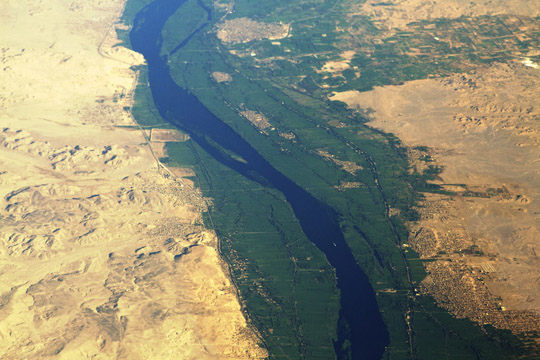When you think of ancient Egypt, what do you imagine? Looming pyramids or ancient tombs covered wall to wall in hieroglyphics? Maybe you picture the extravagant sarcophagi with long dead pharaohs preserved from when you went to the museum as a kid and stumbled upon the treasure trove of the Egyptian section. Whatever first springs to mind, however, probably features death. As a culture, ancient Egypt was obsessed with dying.
Their fascination stemmed from the clear duality they perceived with the fertile Nile and the scorching dessert. With death so close to them, it was hard not to consider their eventual demise. As a result, much of their religion and practices dealt with mortality and its inevitable conclusion.

There were many reasons that would lead the Egyptians to contemplate death, but the main reason that they were able to spend so much time dedicated to their obsession was the abundance of resources. The inundation of the Nile provided enough food for the entire nation. There was enough surplus that the poorest class was still fed.
When a person died, it was thought that their Ba, or personality/soul would take the form of a bird with a human head and fly throughout the universe unencumbered, able to explore and learn things far beyond the living. The body was preserved to preserve the Ba and give it a place to rest. Before proper mummification and burial rites, bodies were buried in holes in the sand. The dryness of the dessert would desiccate the body, preserving it for millennium.
The first rudimentary method for keeping the shape of a body would be to wrap it in linens, ensuring that even as the body decomposed, the main aspects of the human form would remain intact. Later, embalming became common for the wealthy to keep their form for even longer. Their organs were removed and preserved in canopic jars, their cavities were filled with resin and sawdust, they were artificially desiccated with chemicals, and more.
One of the most prominent gods in the Egyptian ennead, their nine oldest and most prominent deities, was Osiris. Osiris was the dead king, the heavenly ruler of Egypt who passed on to become the ruler of the underworld. Every pharaoh was thought to be the hero king god Horus in life and Osiris in death. Osiris was much revered and an incredibly important god for rituals, burials, and celebrations. Color is an important factor to consider when taking into account symbolic meanings in Egyptian art, and Osiris’ green skin represented fertility.
My second favorite god (I’ll talk about my favorite later) was Anubis. Anubis was one of many Jackal gods of death, but Anubis was the first I learned about. In addition to being the heavenly embalmer, Anubis was in charge of weighing the scales to determine where one went in the afterlife. The basic concept was that Anubis would place the heart of the recently dead person on scales against Maat’s feather of truth. The heart was where one’s thoughts and personality were seated and Maat represented all things orderly, lawful, and proper at every level; from personal to cosmic. Essentially, one’s entire person was objectively judged, and if that person was deemed objectively immoral, then Ammit, a chimera with the head of a crocodile, the torso of a lion, and the back end of a hippopotamus (the three deadliest animals in Africa), would devour their heart and end their existence. I always thought that the concept of a final judgement with a crocodile monster, a Jackal god, and an ancient king was a lot cooler than the Christian idea of “pearly gates”.
Because I learned about Egyptian culture before monotheism, I thought about death more than I should have as a toddler. I don’t mean I was obsessed or constantly thinking about it, I just knew it existed and wondered what would happened if I stopped. The stories about the afterlife were so intriguing and the artistic depictions of the weighing of the heart was an interesting idea. I never believed in any bible or religion because I thought of it the same way I thought of Egyptian stories: mythology. To some degree, Egyptian mythology is probably why I’m an atheist today.
“Because I learned about Egyptian culture before monotheism, I thought about death more than I should have as a toddler. ” this quote really shows how dedicated you are to this and I love every moment of it the pictures you use help keep the reader interested.